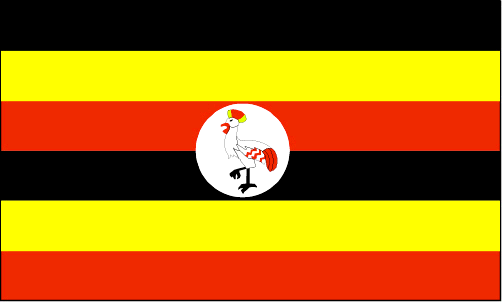Let's Find Out...


...ABOUT UGANDA
-
Uganda is a landlocked country astride the equator in East Africa. It lies on the northwestern shores of Lake Victoria and is bordered by Tanzania, Rwanda, Zaire, Sudan and Kenya.
-
The diverse landscape encompasses the snow-capped Rwenzori Mountains & immense Lake Victoria. Its abundant wildlife includes chimpanzees, as well as rare birds. Bwindi Impenetrable National Park is a renowned mountain gorilla sanctuary. Murchison Falls National Park in the northwest is known for its 43m-tall waterfall & wildlife.
-
Uganda has largely untapped reserves of both crude oil & natural gas. While agriculture accounted for 56 percent of the economy in 1986, with coffee as its main export, since 2007 the services sector has accounted for 52 percent of Uganda’s GDP.
-
The climate is tropical, with temperatures ranging from 21-25°C (70- 77°F), although the mountainous areas are much cooler; the top of Mount Elgon is often covered with snow. The hottest months are December to February.The rainy season is from March till May and October till November. Light rain falls in November and December.
-
Kampala is the capital and the largest Ugandan city, located not far from Lake Victoria.
-
Uganda is a presidential republic. Amendments in 2005 removed presidential term limits and legalized a multi-party political system. Yoweri Museveni has been President of Uganda since 1986. He was involved in rebellions that toppled the previous Ugandan leaders Idi Amin and Milton Obo.
-
There are about 3600 Ugandan shillings in a US dollar.
-
Uganda has had a long and challenging history, although few records of its early settlement exist. We know, however, that Bantu peoples were engaged in agriculture from 1000 BCE and working in iron can be traced back to about CE 1000.
-
Uganda remained under British influence from the latter part of the 19th century until the early 1960’s. Then there were years under Idi Amin when some of the world’s worst atrocities occurred and conflict ravaged the country. Towards the end of the 20th century, however, political stability was reestablished and economic growth began again. During the 1990s Uganda began to prosper as a mainly agricultural country with its main export being coffee. Today the economy of Uganda is growing steadily and there is every reason for optimism about its future. For more details go to www.localhistories.org/uganda

